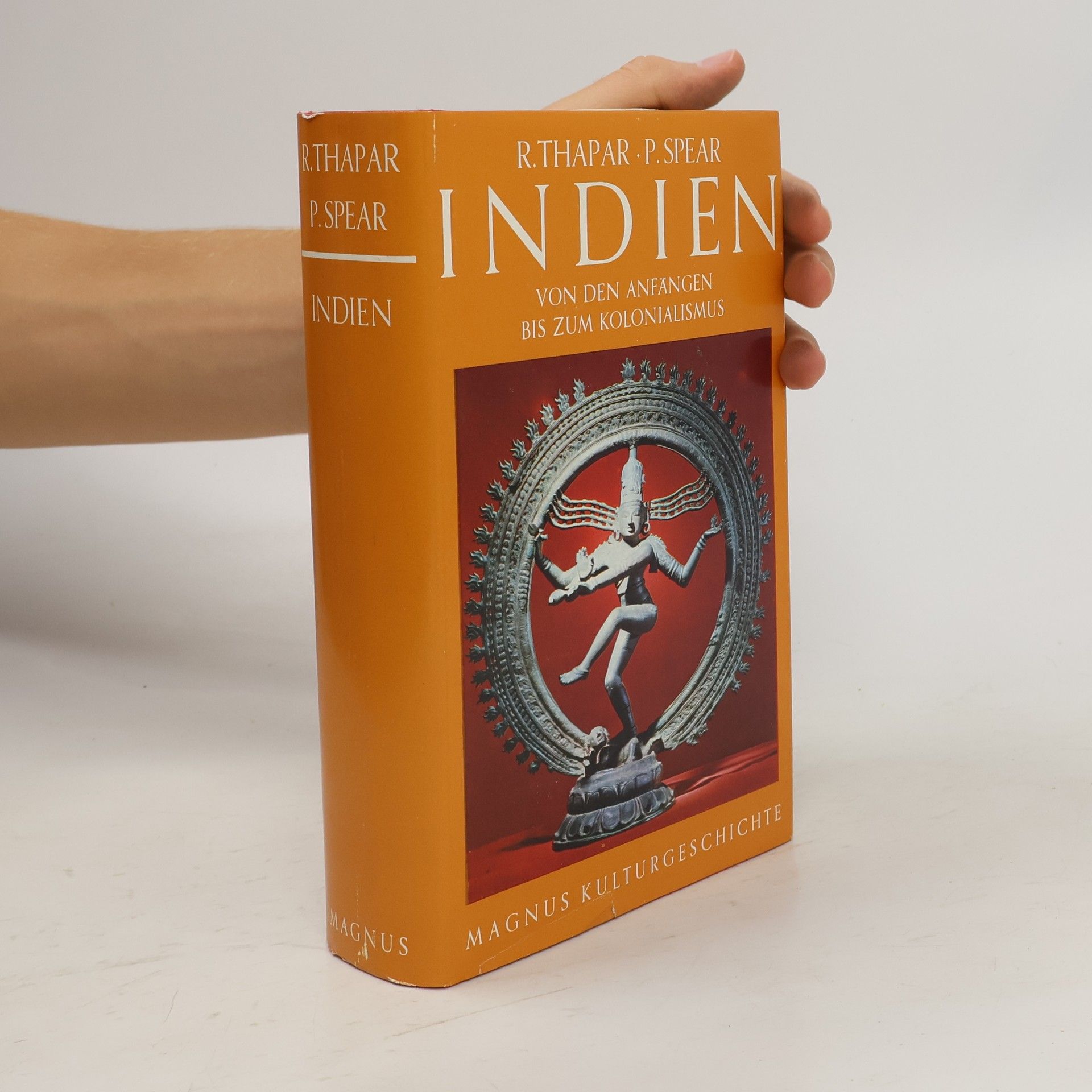The book features a dynamic dialogue between historian Romila Thapar and theorist Gayatri Chakravorty Spivak, exploring the complexities of Indian identity. Through anecdotes and reflections, they navigate the historical narratives that have shaped the notion of India, addressing the challenges of essentialism and exclusion. The authors highlight the importance of education in fostering an inclusive understanding of the nation's diverse history, while tackling themes of nationalism and religion. Ultimately, they pose a critical question about contemporary Indian identity.
Romila Thapar Book order (chronological)
Romila Thapar is an Indian historian whose work explores the social forces shaping early Indian history. She examines the evolution of religious and historical narratives, offering insightful perspectives on how collective memory and societal structures interact. Her approach emphasizes the dynamic nature of history and the continuous process of reinterpreting the past. Thapar contributes to a deeper understanding of historical processes and their contemporary echoes.






Disagreement is an intrinsic part of life, yet in contemporary India, any form of protest is often labeled as anti-Indian, with claims that dissent is a Western import. In her insightful historical essay, Romila Thapar argues that dissent has deep roots in the subcontinent, evolving over centuries. She examines nonviolent dissent across pivotal moments in India’s history, starting from Vedic times and moving through the second to first millennium BCE, highlighting the emergence of the Shramanas—Jainas, Buddhists, and Ajivikas. Thapar also discusses the perspectives of Bhakti sants from the fifteenth and sixteenth centuries, culminating in a significant moment of dissent: Mahatma Gandhi’s satyagraha, which played a crucial role in establishing a free and democratic India. She contextualizes recent peaceful protests against a controversial citizenship law, emphasizing that contemporary dissent must challenge injustice and advocate for democratic rights to foster societal change. Written by a prominent public intellectual, this essay is essential for those interested in India’s rich history and its future trajectory.
Gazing Eastwards
- 296 pages
- 11 hours of reading
In 1957, renowned Indian historian Romila Thapar visited China, where, together with Sri Lankan art historian Anil de Silva, she worked at two cave sites that were the locations of Buddhist monasteries and shrines from the first millennium CE. The first site was the then lesser known Maijishan in north China, and the second was the famous site of Dunhuang on the edge of the Gobi desert in Northwest China. Now, decades later, she is supplementing the academic work that emerged from that trip with a captivating travelogue: Gazing Eastward takes readers back to midcentury China, through the observations that Thapar made in her diary during her time at the two archaeological sites and her trips there and to other sites. Traveling by train or truck, Thapar met people from throughout the country and all stations in society, from peasants on a cooperative farm to Chairman Mao himself. An enchanting document of a long-lost era, Gazing Eastward is a marvel, a richly observed work of travel writing that brings a time and a place fully to life.
A powerful history of the long tradition of political dissent in India published at a moment when the very idea of dissent is under attack.
One of India's preeminent historians examines the role of history in contemporary society.
The Penguin History of Early India. From the Origins to AD 1300
- 556 pages
- 20 hours of reading
A Largely Rewritten Version Of A Classic History Of Early India Concerned Not Only With The Past But Also With The Interaction Of The Past And The Present. Romila Thapar S Penguin History Of Early India Brings To Life Many Centuries Of The Indian Past. Dynastic History Provides A Chronological Frame But The Essential Thrust Of The Book Is The Explanation Of The Changes In Society And Economy. The Mutation Of Religious Beliefs And Practices, The Exploration Of Areas Of Knowledge In Which India Excelled, Its Creative Literature, Are All Woven Into A Historical Context. In This Version, The Opening Chapters Explain How The Interpretations Of Early Indian History Have Changed. Further, Although The Diversity Of Sources And Their Readings Are Well Known, Nevertheless, This Narrative Provides Fresh Readings And Raises New Questions. Romila Thapar Gives A Vivid And Nuanced Picture Of The Rich Mosaic Of Varied Landscapes, Languages, Kingdoms And Beliefs, And The Interaction Between These That Went Into The Making Of A Remarkable Civilization.
